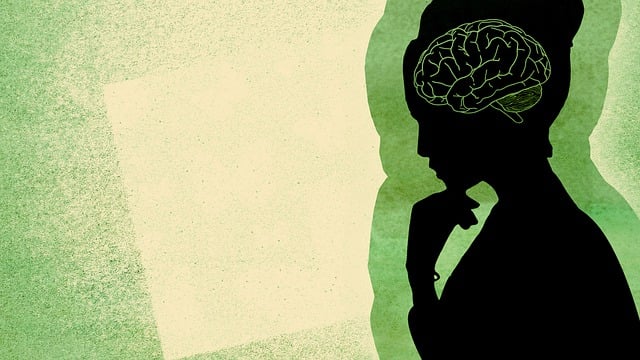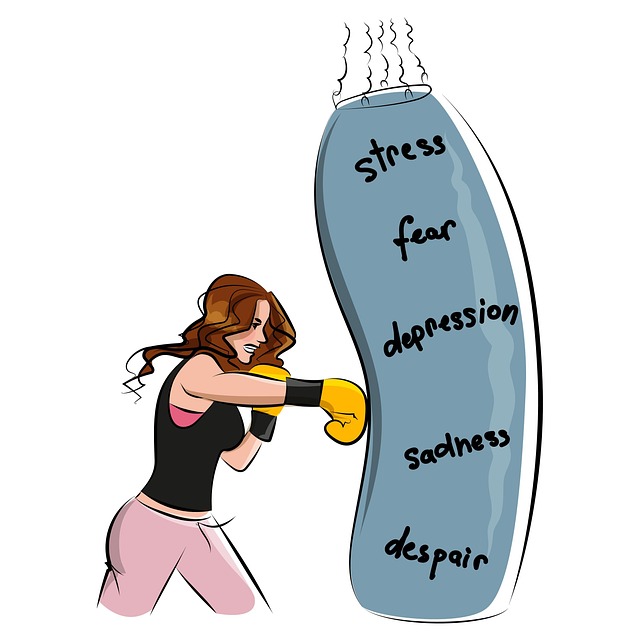Adolescent Teen OCD presents unique challenges due to developmental stage, manifesting as intrusive thoughts and repetitive behaviors impacting daily life. Symptoms include excessive handwashing, checking behaviors, and obsessive preoccupations with symmetry, affecting relationships, academics, and quality of life. Effective therapy for Adolescent Teens OCD focuses on teaching emotional regulation skills, promoting healthy self-care, and providing a supportive environment to challenge and reduce obsessive behaviors, such as Cognitive Behavioral Therapy (CBT) and Exposure and Response Prevention (ERP). Creating a stigma-free space, combining tailored therapies with public awareness campaigns, empowers teens to overcome OCD and regain control.
“In addressing the complex challenges faced by adolescent teens struggling with obsessive-compulsive disorder (OCD), understanding and accessing appropriate therapy becomes paramount. This article delves into the multifaceted approach to supporting young individuals battling OCD, focusing on specialized services and creating nurturing environments for recovery.
We explore the impact of OCD on teens, the role of therapy in its management, and highlight the importance of tailored treatment plans. By examining these aspects, we aim to shed light on effective strategies for helping adolescents overcome OCD and embark on a path towards healing.”
- Understanding Adolescent Teen OCD: Symptoms and Impact
- The Role of Therapy in Supporting Teens with OCD
- Specialized Services for Effective OCD Treatment
- Creating a Supportive Environment for Recovery
Understanding Adolescent Teen OCD: Symptoms and Impact

Adolescent Teen OCD presents unique challenges due to the developmental stage at which teens find themselves. This mental health disorder often manifests as intrusive thoughts and repetitive behaviors designed to alleviate anxiety, but these coping mechanisms can significantly impair daily functioning. Symptoms can include excessive handwashing, checking behaviors, or obsessive preoccupations with symmetry and order, affecting personal relationships, academic performance, and overall quality of life.
The impact of OCD on adolescents extends beyond the immediate symptoms. It can lead to social isolation, low self-esteem, and difficulty managing emotions. Emotional intelligence, once developed, might be compromised as teens struggle to understand and control their feelings. Effective therapy for adolescent teens with OCD focuses on teaching emotional regulation skills, promoting healthy self-care practices, and providing a supportive environment to challenge and gradually reduce obsessive behaviors.
The Role of Therapy in Supporting Teens with OCD

For teens struggling with Obsessive Compulsive Disorder (OCD), therapy plays a pivotal role in their journey towards recovery. Cognitive Behavioral Therapy (CBT) is a highly effective approach, focusing on identifying and changing unhelpful thought patterns and behaviors associated with OCD. Through structured sessions, teenagers learn to challenge their obsessions and compulsions, gaining valuable coping strategies. The goal is not only to manage symptoms but also to foster resilience in the face of distressing thoughts and urges.
Public awareness campaigns and increased understanding can further supplement therapy. By raising awareness about OCD, these campaigns encourage early recognition and intervention. This, coupled with a robust mental health policy that promotes accessible treatment options, ensures teens receive the necessary support. Resilient individuals equipped with appropriate tools from therapy can better navigate life’s challenges, ultimately improving their overall well-being and quality of life.
Specialized Services for Effective OCD Treatment

Specialized services play a pivotal role in effectively treating Obsessive Compulsive Disorder (OCD) among adolescent teens. Beyond general therapy, tailored interventions are essential to address the unique complexities of OCD. These include cognitive-behavioral therapy (CBT), specifically Exposure and Response Prevention (ERP), which helps individuals confront and manage obsessions without performing compulsions. Mindfulness meditation techniques have also shown promise in reducing OCD symptoms by promoting present-moment awareness and distress tolerance.
For mental health professionals, conducting a thorough risk assessment is crucial before initiating treatment. This involves evaluating the severity of OCD symptoms, potential risks associated with certain therapies, and the individual’s capacity to manage distress. By integrating evidence-based practices and individualized care, specialized services contribute significantly to enhancing mental health awareness and improving outcomes for adolescents struggling with OCD.
Creating a Supportive Environment for Recovery

Creating a supportive environment is paramount for the recovery process, especially when addressing complex issues like Obsessive Compulsive Disorder (OCD) in adolescent teens. This involves designing spaces where individuals feel safe to explore their thoughts and emotions without fear of judgment or stigmatization. Therapies tailored for adolescents with OCD, such as Cognitive Behavioral Therapy (CBT), can be highly effective when delivered in a warm and encouraging atmosphere. The therapy room becomes a sanctuary where teens can learn coping mechanisms, challenge obsessive thoughts, and gradually reduce compulsive behaviors.
Emotional well-being promotion techniques, including mindfulness exercises and stress management strategies, play a crucial role in fostering this environment. Public awareness campaigns development centered around mental health awareness can also help normalize conversations about OCD, reducing the stigma often associated with seeking support. By combining these approaches, trauma support services can significantly contribute to the holistic healing of adolescent teens struggling with OCD, enabling them to regain control over their lives and cultivate resilience.
Trauma support services play a pivotal role in helping adolescent teens with obsessive-compulsive disorder (OCD). By combining specialized therapy, such as Cognitive Behavioral Therapy (CBT), with a supportive environment, we can significantly enhance recovery outcomes. Understanding the unique symptoms and impact of OCD among teens is crucial, as it enables us to tailor interventions effectively. With dedicated resources and care, adolescents can navigate their journey towards overcoming OCD, fostering resilience and improved quality of life.








